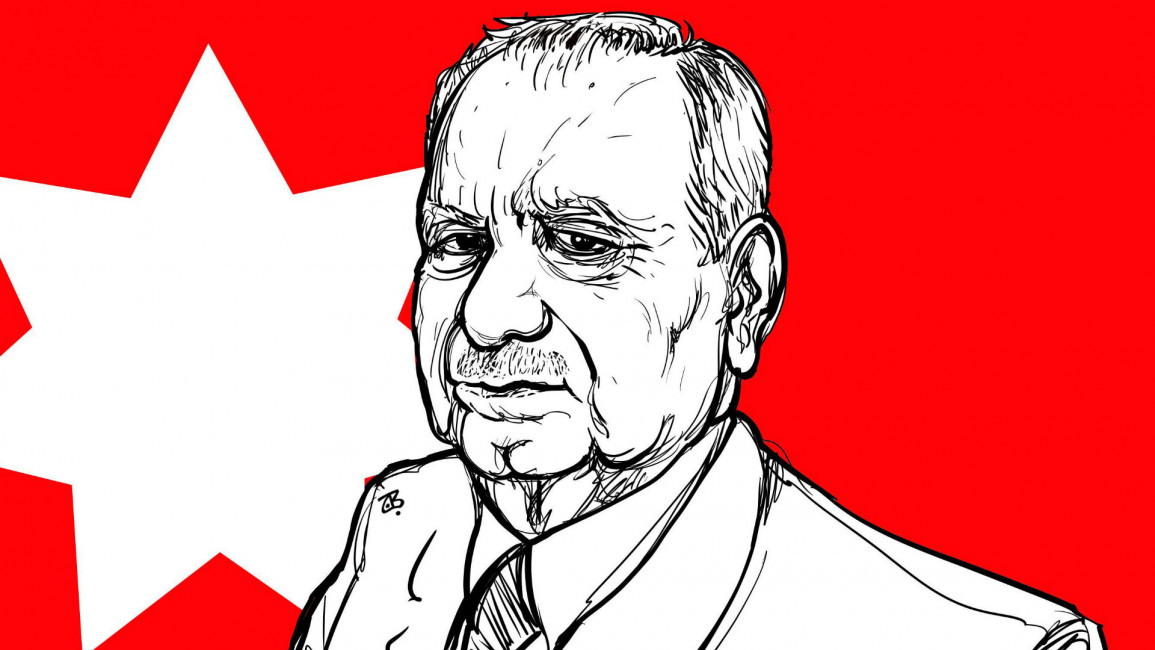
My communist hero
Yacoub Zayadin, the doctor of the poor and Jordanian communist leader, has passed away as quietly as his outwardly quiet - but fundamentally revolutionary - personality.
Dr Zayadin had spent his lifetime fighting for freedom and for liberation. He left in an era that is not his own - of "Daesh", the Islamic State group, and the American jackboot.
His death at 95 is too painful. I am left with lingering sorrow that I feel every time a great fighter for justice leaves us.
He was the living reminder of a bygone era, a time of resisting colonialism: He left us in an era where seeking succour from the colonial powers has become acceptable, if not desirable, and in an era of counter-revolutions against freedom and liberation.
Throughout my childhood and youth I had seen the handsome dignified family doctor arrested, released, and arrested again.
I can even place some of my childhood memories against the dates of his arrest or release.
Over the years I heard many stories from his time in jail - from the Jafr desert prison in southern Jordan to the Mahatta prison in Amman. Stories of torture and deprivation, and stories of the triumph of perseverance despite harsh conditions.
I remember listening with astonishment to the doctor and his comrades, including my mother's uncle, Khalil al-Salem, better known as al-Khal ["the uncle"). They told stories about how, for example, Zayadin always made sure to keep walking no matter how small his cell.
| I can even place some of my childhood memories against the dates of his arrest. |
And I absorbed, in my mind and in my heart, discussions about failed US-backed Baghdad Security Pact and the Arabisation of the Jordanian army, and stories about communist resistance against Nazism as well as tales of Russian literature.
There was nothing in their words or deeds to suggest remorse or surrender. Rather, they were full of determination, pride, and dignity.
I felt that they were connected to the battle for justice and freedom throughout history and in every corner of the world, and more importantly, to the love of humanity and of humans.
Then as we saw defeats, the savagery of oppressive tyrannical regimes and the endurance of the racist Zionist entity in Palestine, the dreams of an early victory were soon shattered.
But I also remember the day when Dr Zayadin rushed to Beirut during the Israeli siege of 1982, because the struggle for him was in deed and not just in word.
He was determined to be there as a doctor and a committed communist along with the freedom fighters of the Palestine Liberation Organisation and the Lebanese people.
The son of al-Samakiyya village, near the southern city of Karak, was a Jordanian, an Arab and a true internationalist. He was a son of Karak as much as he was a son of Jerusalem, where in 1956 Palestinians elected him MP in the most important elections in Jordan's history.
Jerusalemites saw in him a true representative of the people and their aspirations: It was the time of collective Arab awareness against colonialism, when people wanted Jordan to break free of dependency and for Palestine to be liberated.
It was also because the doctor of the poor in Jerusalem - and Amman later - gave a practical example of what it means to be on the side of the working class. He treated many patients for free - not as an act of charity, but out of principled conviction.
| He treated many patients for free - not as an act of charity, but out of principled conviction. |
This was a time long before the rise of artificial Palestinian-Jordanian divisions and the spectre of ugly sectarianism.
Neither Zayadin's Christian roots , nor his Jordanian nationality, commitment to the Palestinian cause nor his communist affiliation, his most important identity, were a cause of trepidation - at a time when anti-communism was at its peak.
In 1957, the regime dissolved parliament, as Jordan formally aligned itself with the West in the Cold War, ushering in the era of US influence in the country.
The parliamentary government headed by Sulleiman al-Nabulsi was disbanded and threw hundreds of political leaders, intellectuals and activists into prison - ushering in more than three decades of martial law.
Dr Zayadin was one of them.
His family, consisting of his courageous wife Salwa and his two children Khalil and Khaled, was exiled to a remote village near Karak in conditions of extreme poverty.
They were later smuggled out to East Germany. By the time they were reunited, his sons barely recognised him.
We bid farewell to the handsome doctor but feel the pain of his departure. Yet we remain confident in our conscious youths, and recall that there are young men and women who are still steadfast in the jails of different Arab capitals.
We are heartened by the fact that Dr Zayadin left knowing that there are still many who have not fallen prey to sectarianism and have not been tempted by the American master.
In the end, the torch is passed through generations as the fight for justice continue.




